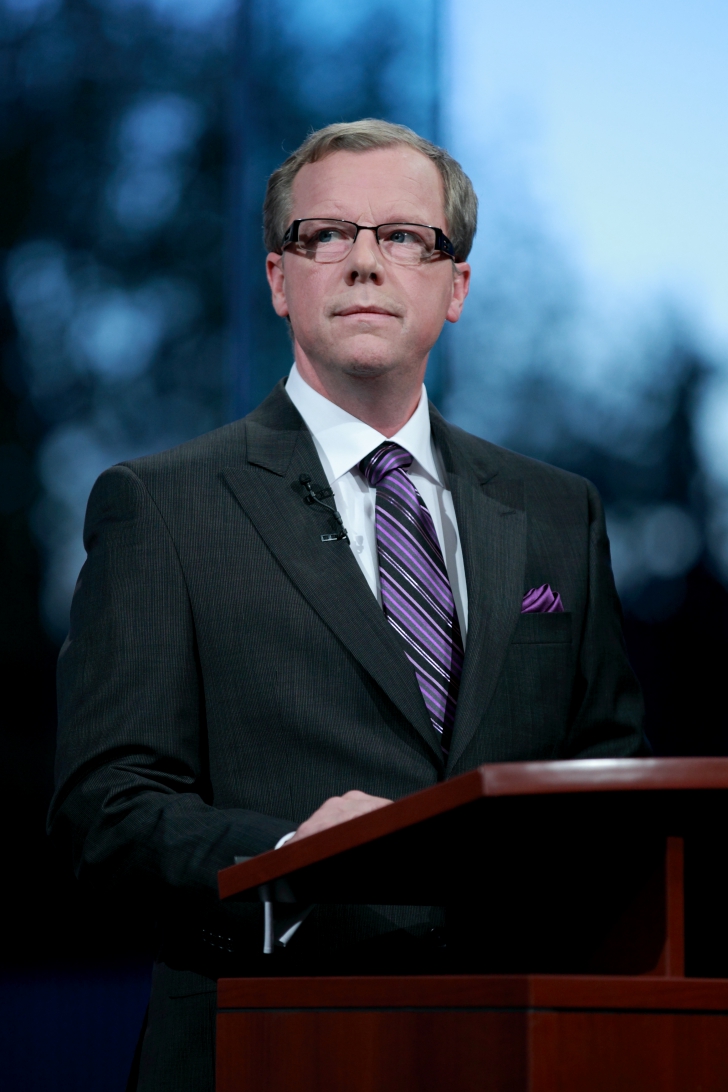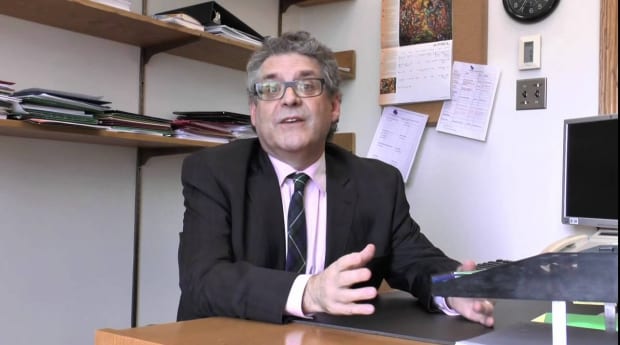Saskatchewan Premier Brad Wall’s government is stalling on a proposed bill to support gay-straight alliances (GSAs) in schools, critics say.
“We know schools with GSAs are healthy places,” NDP MLA David Forbes tells Daily Xtra. “There’s a more healthy respect for diversity.”
Forbes, a married father of three and a former school teacher, introduced his private member’s bill in April 2015.
Having the law in place would guarantee students don’t have to fear being turned away when they ask for a GSA, he says.
“Some of these students are struggling through a difficult time, and they shouldn’t have to be the one to show leadership, and pioneer the fight for their rights and the rights of other students in their school,” he says. “By giving all students the right to ask for a GSA and receive one, legislators are making sure that we’re the ones showing leadership instead of leaving children to do that for themselves.”
Forbes believes educators want to do what’s best for their students. “They also want a no-surprises approach that’s as free of red tape as possible,” he notes. “We can focus on children best when parents, students, principals, administrators and teachers are all on the same page. When a student approaches a teacher to talk about a GSA, I want that teacher to know they have the support and authority they need to help the student.”
The Saskatoon Centre MLA says Wall’s conservative Saskatchewan Party is bending to its conservative base in not moving forward with his bill.
“We think that’s unreasonable,” he says. “We see people really ready for this.”

(Brad Wall, seen here at a leaders’ debate in 2011, did not return Daily Xtra’s calls for comment./Daniel Paquet/Wikipedia)
He says Wall has attempted to divert the issue to a religious discussion. Forbes says when NDP leader Cam Broten first raised the issue of GSAs in the legislature in the spring of 2013, he asked if Wall’s government would consider providing more information on GSAs to students, teachers and parents on a website.
“Brad Wall wouldn’t commit to doing that, and quickly raised concerns about religious freedom,” Forbes says. “We think that was a divisive approach, in which Wall seemed to be seeking out a big, unnecessary fight.”
The premier’s office did not respond to Daily Xtra’s multiple requests for comment by posting time.
Amanda Guthrie is the youth and education coordinator at OUTSaskatoon, Saskatchewan’s queer resource centre. She tells Daily Xtra having queer students’ rights enshrined in legislation, rather than just in Ministry of Education policy, is key.
“We need to have legislation,” she says. “We need hard guidelines.”
Guthrie says there are some GSAs in Saskatchewan, but students across the province need to know the government will support them if they try to create more.
Guthrie says some GSA requests have already been denied in the province.
“This has happened in both urban and rural centres across the province, in both the public and Catholic systems,” she says. “There are currently students, mostly in rural towns, that would love to have a GSA at their schools but due to certain personal beliefs held by teachers or administrators, are not allowed to have a GSA.”
“We’re asking the government to do something pretty easy,” she says, adding that the presence of GSAs in schools has been correlated with decreased discrimination among students.
“I think the government isn’t moving in the direction of legislation because they’re worried how that might look,” she says.

(Amanda Guthrie wants the Saskatchewan government to follow the lead of provinces such as Alberta, which passed an act earlier this year to support students requesting GSAs./Courtesy of Amanda Guthrie)
She says the province is facing an election in 2016 and the governing party is being strategic about what ideas, policies, and legislation they support.
“Unfortunately, it seems like that strategy does not support legislating GSAs and the creation of safe space. I think the government is fearful that they may lose support if they stand up for and support GSAs and LGBT students, which is extremely unfortunate.
Guthrie suggests the Wall government needs to understand that times are changing, and people across Saskatchewan in rural and urban areas support LGBT students. If the government isn’t willing to evolve, she says, it will find itself out of touch with voters.
“Saskatchewan needs a government that is bold and courageous, not one that bends to misguided ideas about voters,” she says.
“We’re simply asking them to follow the lead that other provinces have taken on ensuring that students have a safe space within their schools,” she says. “Legislation makes sense; policy is a cop out.”
Saskatchewan’s 2013 Action Plan to Address Bullying and Cyberbullying acknowledged that some students — such as First Nations, Métis, and lesbian, gay, bisexual or transgender — are more vulnerable. The plan reported more than 50 percent of students who identify as gay, lesbian or bisexual have seriously considered suicide, while 37 percent reported an attempt.
“By responding positively to student requests for school groups that support safety, inclusion and respect for human diversity, such as Gay-Straight Alliances (GSAs), schools can ensure that all students feel safe and accepted at school,” the plan says.
The plan encourages school districts to support student requests for groups that promote inclusion and respect, including GSAs.

“For the Saskatchewan Party to suggest that they’ve already dealt with bullying — especially homophobic bullying — shows that they’re really out of touch with what’s happening in many schools right now,” says NDP MLA David Forbes./ndpcaucus.sk.ca)
Jill Clark, a spokesperson for the Saskatchewan ministry of education, says the government has responded to many of the recommendations in the action plan to ensure schools are safe and welcoming for all students.
She says the ministry introduced a policy in 2015 that clearly states: “In the event any student’s request for an alliance is denied, the ministry will work with the school division to ensure that the needs of each individual student are being met.”
“This policy was communicated to all school divisions in spring 2015 and they have responded very positively to ensure that the appropriate supports for students are available in all Saskatchewan schools,” she says.
Clark says the ministry has also developed a resource called Deepening the Discussion: Gender and Sexual Diversity to help teachers and students.
Forbes says the government’s approach is insufficient to protect students. He calls the resource a “thin document that was light on details and light on action.”
“For the Saskatchewan Party to suggest that they’ve already dealt with bullying — especially homophobic bullying — shows that they’re really out of touch with what’s happening in many schools right now, and really failing to listen to students, parents and educators,” he says.
“Until every student has a place to turn for safety and support, we need to do more,” he says.

 Why you can trust Xtra
Why you can trust Xtra


